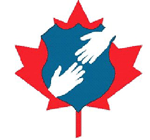 |
Canadian National Committee for Police/Mental Health Liaison |
|||
Police/Mental Health Liaison Activities in Canada Fall, 2001 An email questionnaire was sent out under the auspices of CACP in 2001 in an attempt to determine what the range and extent of activities that police services were involved in, in regard to working with individuals with mental illnesses and the mental health system. The survey is by nature incomplete. We have no way of knowing whether there are many other police services who have programs in place yet did not respond. However, the following does give some overview of the types of activities that were in existence at that time. Total responding police services: 38 (approximately 10% or fewer of police services in Canada) ( For the purposes of the present survey, it was hard to know what the total number of police services in Canada is since it depends upon whether one considers large decentralized services such as the RCMP, the OPP and SQ as a single service or if each detachment should be considered a service. In the present survey, if there was a response from a specific detachment, it was treated as a separate service (this happened in two cases). If there was a response of behalf of the entire service, as was the case for one large service, this was also treated as a single response. Conservatively, there are at least 300 services that might have responded to survey.) |
||||
Type
of activity | # of police services reporting that activity
| Comments
|
||||
Designated mental health officer |
15
|
may be full time or an "add on" duty |
||
Formal agreements with
a mental Health agency |
16 |
|||
Formal agreement with a
hospital Emergency room |
14 |
|||
Direct employment by police
service of mental health professionals |
3 |
|||
Written materials provided for officers
|
19 |
|||
Access to a direct telephone link to MH professionals for assistance |
25 |
|||
Formal training about mental illness
provided to police |
22 |
|||
Police service employees officers with
Previous MH experience |
14 |
often there is no formal use made of these skills however |
||
Access to a mental health court |
4 |
|||
Access to diversion programs
|
12 |
several services reported "informal"
diversion as well (these data were collected before Ontario funded diversion
programs -- there are no doubt many more today) |
||
Participation in mental
health liaison committees |
31 |
|||
Statistical procedures
for tracking MH calls |
16 |
there is no standard data
collection mechanism |
||
Services were also asked: On a scale of 1 to 5 (low to high) how big a problem is dealing with individuals with metal health problems for your service? Mean response: 3.5 Do your officers require addition training in this area? Yes: 19 |
||||